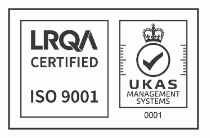In the realm of EU Funding, you’ll find many references to the concept of a ‘Gender Equality Plan (GEP)’. Indeed, for public entities, having a GEP is a necessary requirement in order to be eligible to receive funding under the EU’s research framework programme, Horizon Europe. However, as can often happen when something is made a bureaucratic necessity, GEPs have often become a simple tick-box exercise for entities that need to have them, without any proper engagement with or use of the instrument in the manner that they were intended for.
So what are these elusive GEPs, and why do they matter?
GEPs are a way for an organisation to actively seek to work towards an inclusive gender equality approach in all its operations. GEPs is a framework that consists of a set of tailored, targeted actions that an organisation sets for itself, that allows the leadership of an entity to critically look at gender within their organisation and develop specific actions on established areas of focus such as recruitment, work-life balance, harassment, etc. In essence, GEPs provide a clear direction as to where an organisation wants to go in relation to its gender equality aims, how to get there, and the SMART targets to measure success.
Gender equality plans benefit everyone within an organisation, irrespective of gender. The benefits of gender equality are clear: respectful and safe work environments, improved employee engagement and wellbeing, and increased innovation and productivity.
In our work within EU projects, we at AcrossLimits often see GEPs being put on shelves once they are compiled by an administration of an organisation. Private organisations, who are not bound to have them in order to receive EU funding, often simply forgo having them altogether, due to the lack of awareness and understanding on how to go about creating a GEP for an organisation. It is relevant to remember that many organisations, especially SMEs, do not necessarily have internal expertise when it comes to the area of gender equality, and feel intimidated by the entire process.

The WINBLUE project: Supporting Blue Economy Private Organisations to integrate GEPs
Within the context of the EU-funded WINBLUE project (Empowering Women and Mainstreaming Gender Equality in the Blue Economy), we are organising a free workshop for Malta-based private organisations precisely to address this need.
In the workshop we will have an introduction to what gender equality means and what GEPs should consist of, have roundtable discussions with local stakeholders on the issues currently experienced within the maritime & coastal tourism industry in relation to gender (in)equality, and brainstorm ideas for practical measures that can be implemented.
This stakeholder feedback will then feed into the co-creation of a GEP template that will be made available for all entities within the sector to be able to adapt. The workshop group will be limited to a small number of participants as we are looking for engaged discussions and participant-lead co-creation.
Participants must register here: https://forms.gle/eJKqBhvgSanTCEWQ8
WINBLUE is funded by the European Union. Views and opinions expressed are however those of the author(s) only and do not necessarily reflect those of the European Union or the European Climate, Infrastructure and Environment Executive Agency (CINEA). Neither the European Union nor the granting authority can be held responsible for them.



